Latest News

State of the Schools – Budget challenges, but lots to celebrate at Mascenic
I’m honored to have been asked to write a column highlighting the outstanding work of students and staff in the Mascenic Regional School District.This is my fifth year serving the communities of Greenville and New Ipswich. Despite the challenges of...
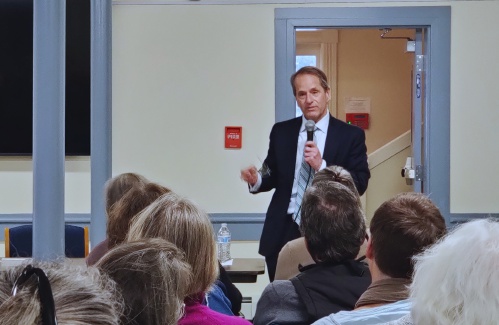
Frank Edelblut speaks at Dublin Education Advisory Committee forum
Speaking at a forum held by the Dublin Education Advisory Committee (DEAC) Tuesday night, New Hampshire Education Commissioner Frank Edelblut said it’s becoming increasingly common for towns to withdraw from their cooperative school districts.Edelblut...
Most Read
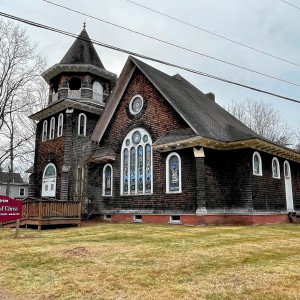 Petitioners seek special Town Meeting regarding tax lien on Antrim Church of Christ
Petitioners seek special Town Meeting regarding tax lien on Antrim Church of Christ
 New photography studio opens on Jaffrey Main Street
New photography studio opens on Jaffrey Main Street
 State of the Schools – Budget challenges, but lots to celebrate at Mascenic
State of the Schools – Budget challenges, but lots to celebrate at Mascenic
 UPDATE: Drivers identified in Jaffrey dump truck crash
UPDATE: Drivers identified in Jaffrey dump truck crash
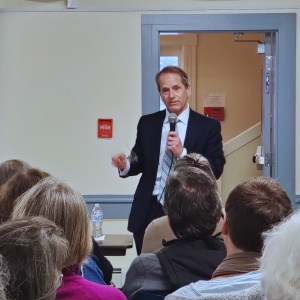 Frank Edelblut speaks at Dublin Education Advisory Committee forum
Frank Edelblut speaks at Dublin Education Advisory Committee forum
Editors Picks
 ConVal committee begins to study withdrawal process
ConVal committee begins to study withdrawal process
 HOMETOWN HEROES – Rose Novotny is motivated by community
HOMETOWN HEROES – Rose Novotny is motivated by community
 New Ipswich firefighters called on to rescue horse
New Ipswich firefighters called on to rescue horse
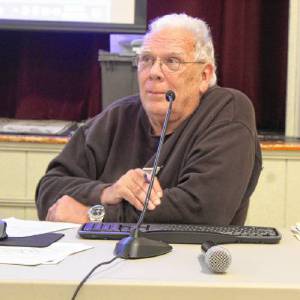 Temple unlikely to hold special Town Meeting on ConVal withdrawal
Temple unlikely to hold special Town Meeting on ConVal withdrawal
Sports

After losing Borges, ConVal softball falls to H-B
Throw the final score out the window – ConVal’s 8-1 loss to visiting Hollis-Brookline Monday featured 7½ innings of playoff-caliber softball before being derailed by a shocking injury.“The bad part is nobody will know how great that game was if they...
 Big first inning carries Wilton-Lyndeborough softball to win over Sunapee
Big first inning carries Wilton-Lyndeborough softball to win over Sunapee
 Conant baseball shows its strength in win over Mascenic
Conant baseball shows its strength in win over Mascenic
 Katalina Davis dazzles in Mascenic shutout win
Katalina Davis dazzles in Mascenic shutout win
Opinion
Viewpoint – Bridging the chasm of political polarization
Our founding document, the Declaration of Independence, opens with a national commitment to individual equality and rights, implicitly recognizing and protecting the diversity of America. Enabled by the declaration, we bring to our communities, our...
 Letter: River Center thanks volunteers
Letter: River Center thanks volunteers

Business
Andrew Fletcher of Dublin lands promotions position
Andrew Fletcher of Dublin, a senior pursuing a bachelor’s degree in communication/ministry and leadership from Bob Jones University, was hired before graduation as a promotions manager at Sego Lily Foundation in Ogden, Utah.
 T & W Handyman Services in Jaffrey celebrates new location
T & W Handyman Services in Jaffrey celebrates new location
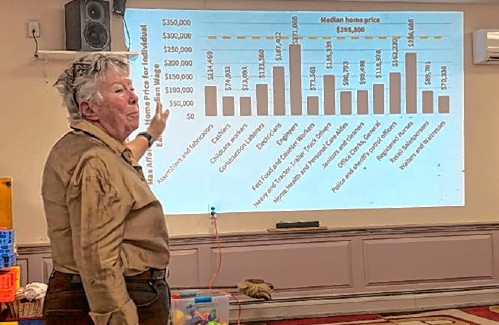 BUSINESS QUARTERLY: Grants allow towns to study housing
BUSINESS QUARTERLY: Grants allow towns to study housing
 BUSINESS QUARTERLY: Dan Petrone – A guide to the commission settlement
BUSINESS QUARTERLY: Dan Petrone – A guide to the commission settlement
 BUSINESS QUARTERLY – New housing projects could provide relief
BUSINESS QUARTERLY – New housing projects could provide relief
Arts & Life

Restorative justice author Leaf Seligman to speak at the Mariposa Museum
The Mariposa Museum & World Culture Center will host an event for Leaf Seligman’s new book, “Being Restorative,” on Saturday, May 4, at 3 p.m. Seligman, a restorative justice practitioner, will lead a free circle conversation and sign copies of her...
 Firelight Theatre co-founder Nora Fiffer takes ‘Another Happy Day’ to Beverly Hills Film Festival
Firelight Theatre co-founder Nora Fiffer takes ‘Another Happy Day’ to Beverly Hills Film Festival
 Francestown Academy Coffeehouse is in its second year
Francestown Academy Coffeehouse is in its second year
 Jaffrey Civic Center hosting ‘Two Tours’ exhibit
Jaffrey Civic Center hosting ‘Two Tours’ exhibit
 Ana Armengod showing experimental films for MacDowell Downtown
Ana Armengod showing experimental films for MacDowell Downtown
Obituaries
 Betty S. S. Stoughton
Betty S. S. Stoughton
Jaffrey NH - Betty S. S. Stoughton died suddenly on April 13, 2024, a surprise to all who believed she'd live forever or at least until they were ready to say goodbye. She was born on October 16, 1927, fifth of six children born to ... remainder of obit for Betty S. S. Stoughton
 Cynthia E. Hamilton
Cynthia E. Hamilton
Jaffrey, NH - Cynthia E. Hamilton, 92, a lifelong resident of Jaffrey, NH, passed away at Portsmouth Regional Hospital on Tuesday, April 23, 2024. Cynthia was born in Peterborough, NH, on May 4, 1931, daughter of the late Don A. and... remainder of obit for Cynthia E. Hamilton
 Dorothy Record
Dorothy Record
Dorothy 'Pearl' Record Jaffrey NH - With her family by her side, Dorothy "Pearl" Record, 84, passed away peacefully on Saturday, April 27, 2024, at the Jaffrey Rehabilitation & Nursing Center in Jaffrey, NH, after a lengthy battle with A... remainder of obit for Dorothy Record
 Maxine Teates
Maxine Teates
Maxine "Wickie" Teates Greenfield NH - Maxine L. "Wickie" Teates passed away peacefully, and surrounded by the love of her family, on April 27, 2024, at Spring Village at Summerhill in Peterborough. Wickie was born in Peterborough on Ap... remainder of obit for Maxine Teates

 State Rep. Jonah Wheeler of Peterborough seeks passage of bill that would increase state funding for schools
State Rep. Jonah Wheeler of Peterborough seeks passage of bill that would increase state funding for schools
 Bellows-Nichols makes donation to Hillsborough County 4-H
Bellows-Nichols makes donation to Hillsborough County 4-H
 Gail Hoar: Words About Wilton – Lessons while walking
Gail Hoar: Words About Wilton – Lessons while walking
 Jarvis Coffin: Off the Highway – Liver free or die
Jarvis Coffin: Off the Highway – Liver free or die


